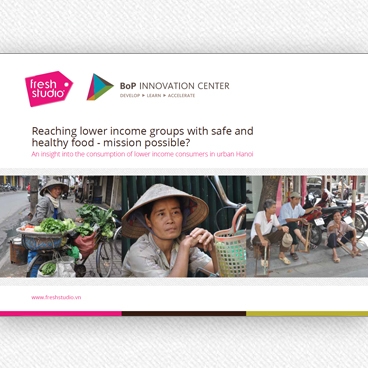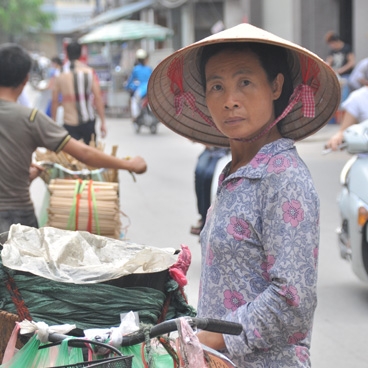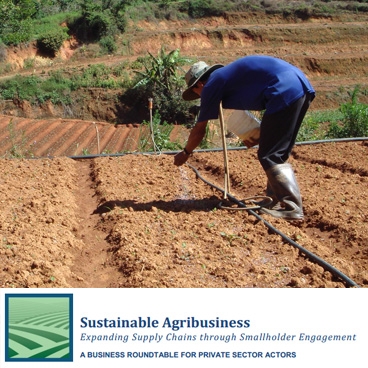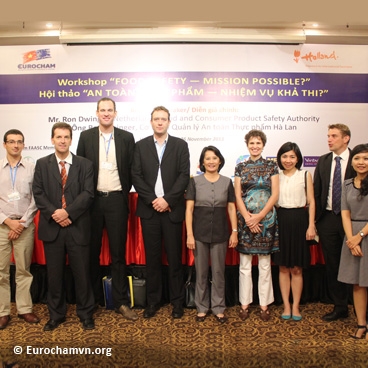Nearly 50% of Hanoi’s urban population lives on 4 USD or less a day. This group represents a food value of circa 5 million USD/day. Despite their demand for safe and nutritious food, this economy of scale is not yet targeted with fresh food quality improvements.
Food that carries formal food safety certification by government authorities is mainly traded at registered and certified food safety retail outlets, targeting middle and upper income classes. Even though Hanoi’s lower income residents are explicitly demanding for safe and healthy foods, they are generally excluded from these channels.
The exclusion of lower income consumers from more controlled formal food provision systems urges innovative approaches.
The research was funded by BoP Innovation Center and conducted by Fresh Studio in 2013.
Get access by downloading the report below and discover whether it is a “Mission (im)possible” to reach lower income consumers in urban Hanoi with certified safe and healthy food.
+ Reaching lower income groups with safe and healthy food – mission possible? (3 MB)
____________________________________________________
Source: Fresh Studio
Language: English
Publication date: June 2014








